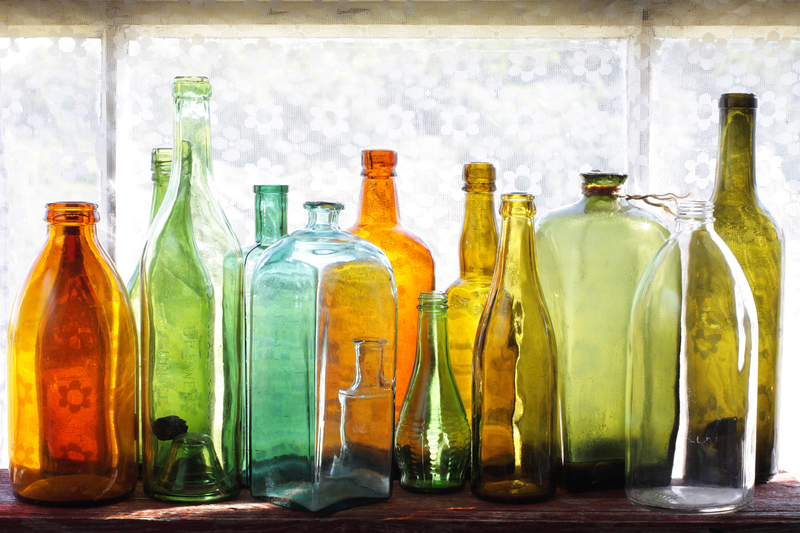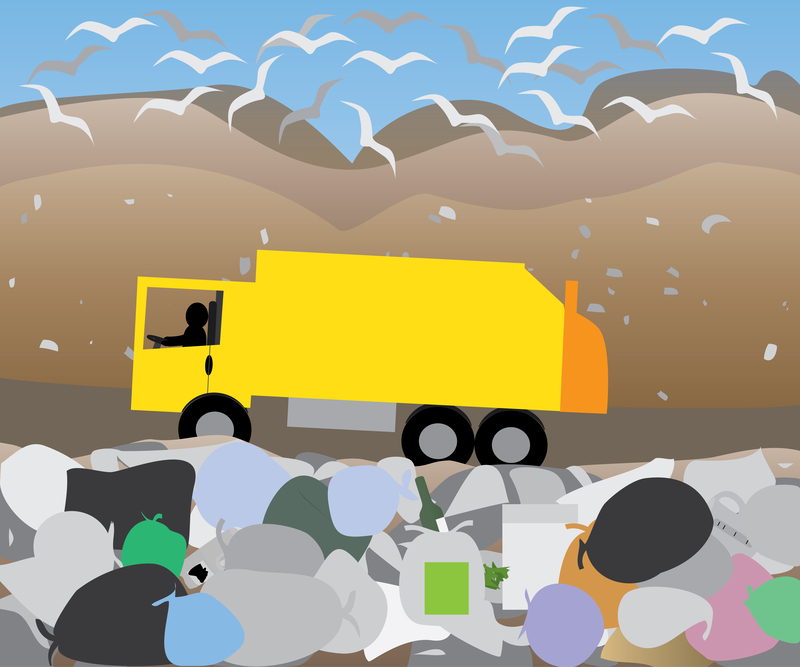Where and How to Donate or Recycle Pots and Pans Near You
Are your kitchen cupboards overflowing with old cookware? Maybe you're upgrading your set or simply clearing out unused items. Whether your pots and pans are gently used or at the very end of their lifespan, it's worth considering a greener solution than simply tossing them in the trash. Donating or recycling pots and pans near you not only helps keep usable goods out of landfills, but can also benefit your local community. In this comprehensive guide, you'll discover the *best ways to donate or recycle pots and pans*, ensuring they find new life elsewhere or are responsibly disposed of.
Why Should You Donate or Recycle Old Pots and Pans?
Before dumping your unwanted cookware, let's examine some compelling reasons to donate or recycle cookware near you:
- Environmental Benefits: Recycling reduces landfill waste and conserves resources by enabling the reuse of metals and other materials.
- Helping Others: Donating pots and pans aids families in need, community kitchens, and nonprofit organizations.
- Reducing Clutter: *Passing on* or recycling cookware frees up valuable kitchen space and keeps your home organized.
- Supporting the Circular Economy: When you recycle or donate, you are helping to close the loop, keeping products and materials in use for as long as possible.
With so many benefits, there's no reason to let those old pots and pans languish in storage or head straight to the dump!

Donation vs. Recycling: What's the Difference?
Donating pots and pans means giving away your usable items to individuals or organizations that can put them to good use. *Recycling pots and pans near you*, on the other hand, is about ensuring that damaged or unusable items are broken down and their materials reused.
- Donation: For cookware that's still in decent condition, without major dents, cracks, or missing handles.
- Recycling: For cookware that's warped, chipped, extremely worn, or contains toxic coatings that have degraded.
Where to Donate Pots and Pans Near You
Many organizations enthusiastically accept good-quality kitchenware. Here are the best places to donate pots and pans:
1. Local Charities and Thrift Stores
- Goodwill, Salvation Army, Habitat for Humanity ReStores: These national organizations generally accept gently used pots and pans at their drop-off locations. Just be sure the cookware is clean and in working condition.
- Regional and Community-Based Thrift Shops: Local shops often welcome kitchen essentials. Check their website or call to confirm they're accepting cookware donations.
2. Homeless and Domestic Violence Shelters
- Many *shelters* and transitional housing organizations cook on-site and need sturdy cookware or provide starter sets for individuals moving into independent housing.
- Contact shelters directly to ask about their needs and what items they are able to accept.
3. Food Banks and Soup Kitchens
- *Community kitchens* constantly need kitchen supplies to support meal programs. Gently used pots, pans, and other essentials can make a big impact.
- Some organizations run "community kitchens" classes for those learning to cook on a budget and readily accept cookware donations.
4. Faith-Based Organizations
- Churches, mosques, synagogues, and other houses of worship often organize donation drives for those in need--especially refugees or families affected by disasters.
- Reach out to your local place of worship to see if they have ongoing needs or special donation events.
5. Online "Buy Nothing" or Freecycle Groups
- Websites and local groups (such as Buy Nothing Project or Freecycle) allow you to list *free pots and pans* for anyone in your community who could use them.
- These platforms are perfect for giving away single items or whole sets quickly and directly to a neighbor.
Before you donate, be sure to:
- Scrub pots and pans clean of food residue and oil.
- Check for large cracks, missing handles, or significant non-stick coating damage (these can be unsafe to use).
- Include lids and matching pieces, if possible, for better usefulness.
Where to Recycle Pots and Pans Near You
If your cookware is no longer safe or practical to donate, recycling your pots and pans is the next sustainable step. Here's where to look:
1. Scrap Metal Recyclers
- Material Matters: Most pots and pans are made from metals like aluminum, stainless steel, or copper--all of which are recyclable! Cast iron can also be recycled, though it is heavier to transport.
- Find local scrap metal recycling facilities by searching online or using your city's recycling locator tool.
- Be sure to remove all non-metal parts such as plastic handles, glass lids, or silicone grips, as recyclers usually require metal-only items.
2. Municipal Recycling Programs
- Some cities accept *small metal items* like pots and pans directly in household recycling bins. However, policies vary widely.
- Check with your local waste management program: Search their website, call, or use any online quiz tools to see if you can recycle cookware curbside.
- Attention: Non-stick or Teflon-coated cookware usually cannot go with curbside recycling, due to the chemical coatings. These are best taken to a special collection site or scrap yard that accepts coated metals.
3. Household Hazardous Waste Events
- Some municipalities host drop-off days for *hard-to-recycle materials*, where you can bring old cookware, especially if it's non-stick (Teflon) coated.
- Search your city's or county's website for "household hazardous waste events" or "hard-to-recycle materials events."
4. Specialty Recycling Programs
- Some retailers and brands offer take-back or mail-in recycling programs for cookware. For example, the company TerraCycle partners with various brands to recycle kitchen items.
- Check with the original manufacturer or the retail store you purchased from--they may recycle old items when you buy new ones.
How to Prepare Pots and Pans for Donation or Recycling
For Donation
- Thoroughly clean pots and pans, removing burned-on food and grease.
- Include any lids or matching components.
- Check for damage: Sharp edges, warping, or missing pieces may make items unusable (see if they're better for recycling).
- If possible, provide sets rather than single pieces for greater usefulness to recipients.
For Recycling
- Disassemble: Remove non-metal components such as plastic handles and glass lids (these usually aren't recyclable with the metal pan).
- Separate materials: If you have several types (stainless steel, aluminum, copper), separate them if your recycler requests it.
- Call ahead: Ask your local recycler about what types of metals and coatings they accept, and if there's a drop-off or pickup process.
Common Questions About Donating and Recycling Cookware
1. Can non-stick pans be recycled?
Most curbside recyclers do not accept non-stick (Teflon) coated cookware due to the chemicals in the coating. However, some scrap metal facilities will accept them if you remove loose coatings and plastic handles. Always check with your chosen recycling location first.
2. Are rusty or heavily damaged cookware accepted for donation?
Generally, no. Charities prefer cookware to be in clean, safe, and functional condition. Severely rusted, warped, or chipped pots and pans are better candidates for recycling, not for donation.
3. Can glass lids be recycled?
Most glass lids are made from tempered glass, which generally cannot be recycled with normal glass bottles and jars. Check for specialty recycling programs or see if scrap yards accept them with other housewares.
4. What about ceramic or enameled cookware?
These items are tricky--they often can't go in regular curbside recycling. *Contact local donation centers* first (some will accept them if in good shape), or look for hazardous waste or pottery recycling programs for disposal.
5. Do I need to transport my cookware for recycling or will someone pick it up?
Most scrap yards and donation centers require you to drop items off. Some cities have periodic bulky item pickups or special recycling days; check your local municipality for details.
Pro Tips for Donating or Recycling Pots and Pans Successfully
- Call ahead: Every location has its own rules--confirm operating hours, acceptance policies, and any current restrictions.
- Present clean items: Show respect for organizations and new users by cleaning items thoroughly before dropping off.
- Bundle sets: Whenever possible, keep matching lids or pieces together with pans for a complete donation or recycling drop-off.
- Be transparent: If donating online, show photos and note any minor imperfections so recipients know what to expect.
- Stay local: Keeping donations and recyclables within your community reduces environmental impact from transportation and helps your neighbors directly.
The Environmental Impact of Recycling Cookware
Did you know that aluminum cookware recycling saves up to 95% of the energy required to produce the same aluminum from raw materials? Stainless steel and cast iron are likewise highly recyclable, and every reused or recycled pot or pan means fewer resources extracted from the earth. By recycling pots and pans near you, you're directly reducing waste, conserving energy, and supporting a cleaner planet.
What Not to Do with Old Pots and Pans
- Do not put them in general garbage unless no other option exists.
- Do not place non-stick or coated pans in recycling bins without verifying they're accepted.
- Do not donate unsafe or irreparably damaged cookware--this may cause problems for charities and future users.

Creative Alternatives: Upcycle Your Old Cookware
- *Planter pots:* Drill a few holes and turn a leaky saucepan into a unique plant container.
- *Garden art:* Paint and use large old pans as birdbaths, wind chimes, or outdoor decorations.
- *Organizer or storage:* Use deep pots for storing craft supplies, tools, or as a rustic catch-all.
- *DIY wall hanging:* Mount interesting pans or lids as quirky kitchen wall art.
These creative projects extend the life of your cookware and keep materials out of the waste stream!
In Conclusion: Make a Lasting Impact by Donating or Recycling Cookware Near You
When it's time to say goodbye to your old pots and pans, remember that *minding disposal matters*. Donating cookware near you can help local families and nonprofit organizations, while recycling pans in your area protects the planet by conserving resources and lowering landfill waste. Choose one of the many responsible options above, and you'll declutter your kitchen while making a positive impact in your community and beyond.